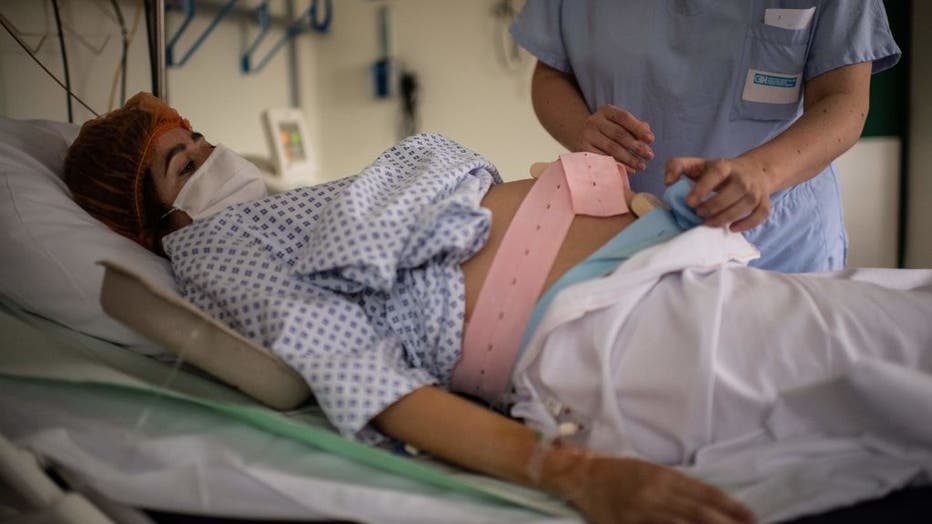Global study suggests pregnant women who get COVID-19 have higher risk of complications, death
A large study involving hundreds of women around the world suggests that those who get COVID-19 during pregnancy have higher risks for death, the need for intensive care, preterm birth and other complications.
The new research, published Thursday in the Journal of the American Medical Association Pediatrics, adds to current the understanding of the risk pregnant women who get the virus face, as well as their newborns. It echoed the results of smaller studies.
The U.S. Centers for Disease Control and Prevention has said that while the overall risk is low, pregnant women are more likely to suffer from severe COVID-19 illness compared to those who aren’t pregnant. Pregnant people with the virus might also be at increased risk for other poor outcomes, such as preterm birth, the agency’s website adds.
The new multi-national research looked at 2,130 pregnant women in 18 countries — 706 of whom had tested positive for COVID-19 — between April and August 2020. The study was led by authors from the University of Oxford and the University of Washington School of Medicine.

FILE - A nurse helps a pregnant woman during the COVID-19 pandemic at the maternity of the Diaconesses hospital on Nov. 17, 2020 in Paris, France. (Photo by Martin BUREAU / AFP) (Photo by MARTIN BUREAU/AFP via Getty Images)
The findings showed that those diagnosed with the virus had a higher risk for preeclampsia, severe infections, admission to hospital intensive care units and death. Their babies were also at greater risk of neonatal complications, mainly due to preterm birth, the study said.
Of the mothers who tested positive for COVID-19, 11.5% of their babies also tested positive, the study found.
While other studies have looked at COVID-19's effects on pregnant women, this was among the first study to have a concurrent control group with which to compare outcomes, said Dr. Michael Gravett with UW Medicine, one of the study's lead authors.
"The No. 1 takeaway from the research is that pregnant women are no more likely to get COVID-19, but if they get it, they are more likely to become very ill and more likely to require ICU care, ventilation, or experience preterm birth and preeclampsia," Gravett said, who is a professor of obstetrics and gynecology at UW Medicine.
Gravett also noted that pregnant women whose COVID-19 was asymptomatic or mild were not found to be at increased risk for ICU care, preterm birth or preeclampsia. About 40% of the women in the study were asymptomatic.
Pregnant women who were obese or had hypertension or diabetes were at the greatest risk for severe disease, the study found.
"I would highly recommend that all pregnant women receive the COVID-19 vaccines," based on this research, Gravett said.
Other studies have found that babies still in the womb can get COVID-19 antibodies from mothers who were previously infected, while recent research by Northwestern Medicine showed the potential for vaccinated mothers to pass the protective antibodies to their newborns.
This week, the U.S. Centers for Disease Control and Prevention also shared the preliminary results of a report of 35,000 U.S. women who received either the Moderna or Pfizer COVID-19 vaccine while pregnant.
The data showed that the two vaccines appear to be safe for pregnant women, and those who were vaccinated did not appear to have any greater risk of pregnancy complications compared to those observed in published reports on pregnant women before the pandemic.
CDC Director Rochelle Walensky on Friday morning discussed the findings and said the agency recommends pregnant women receive a COVID-19 vaccine.
RELATED: CDC: COVID vaccines appear safe for pregnant women
This story was reported from Cincinnati.

